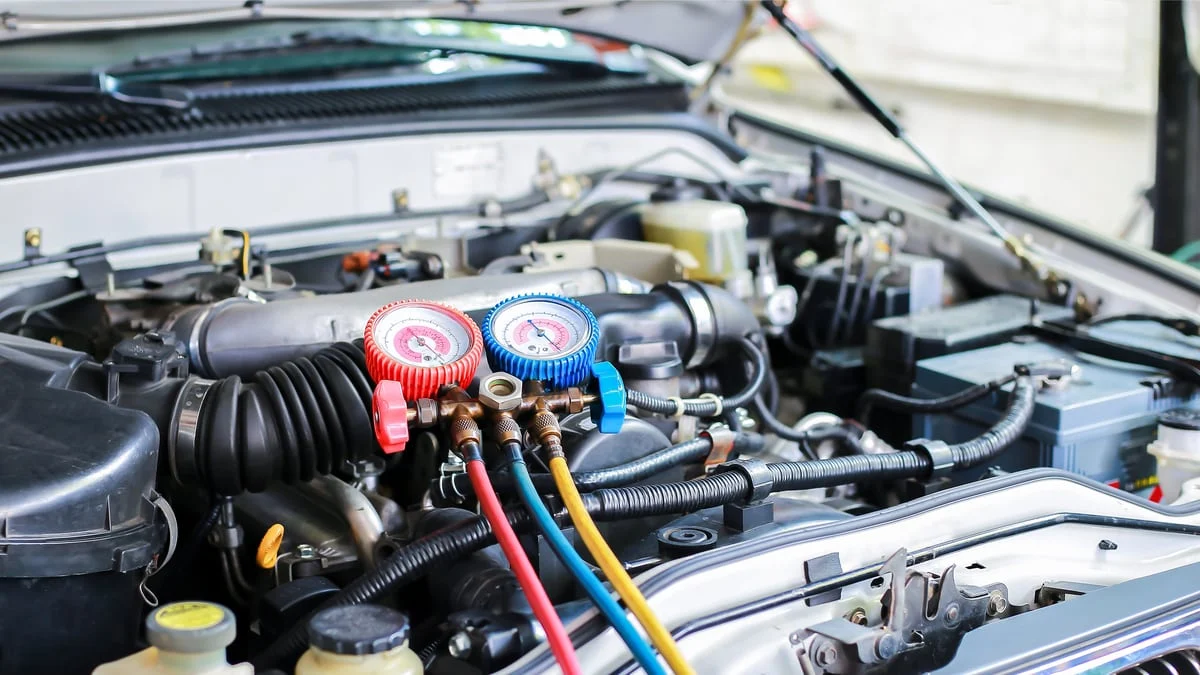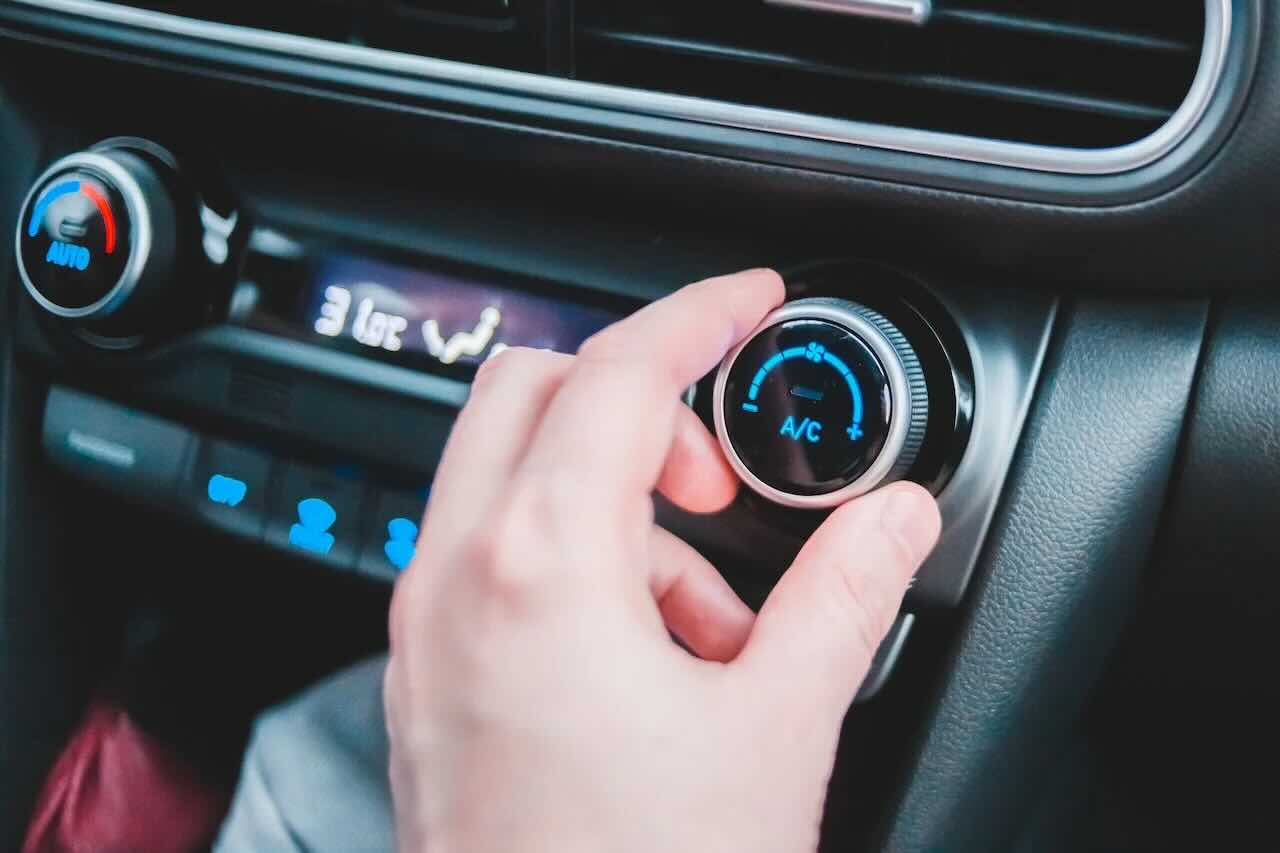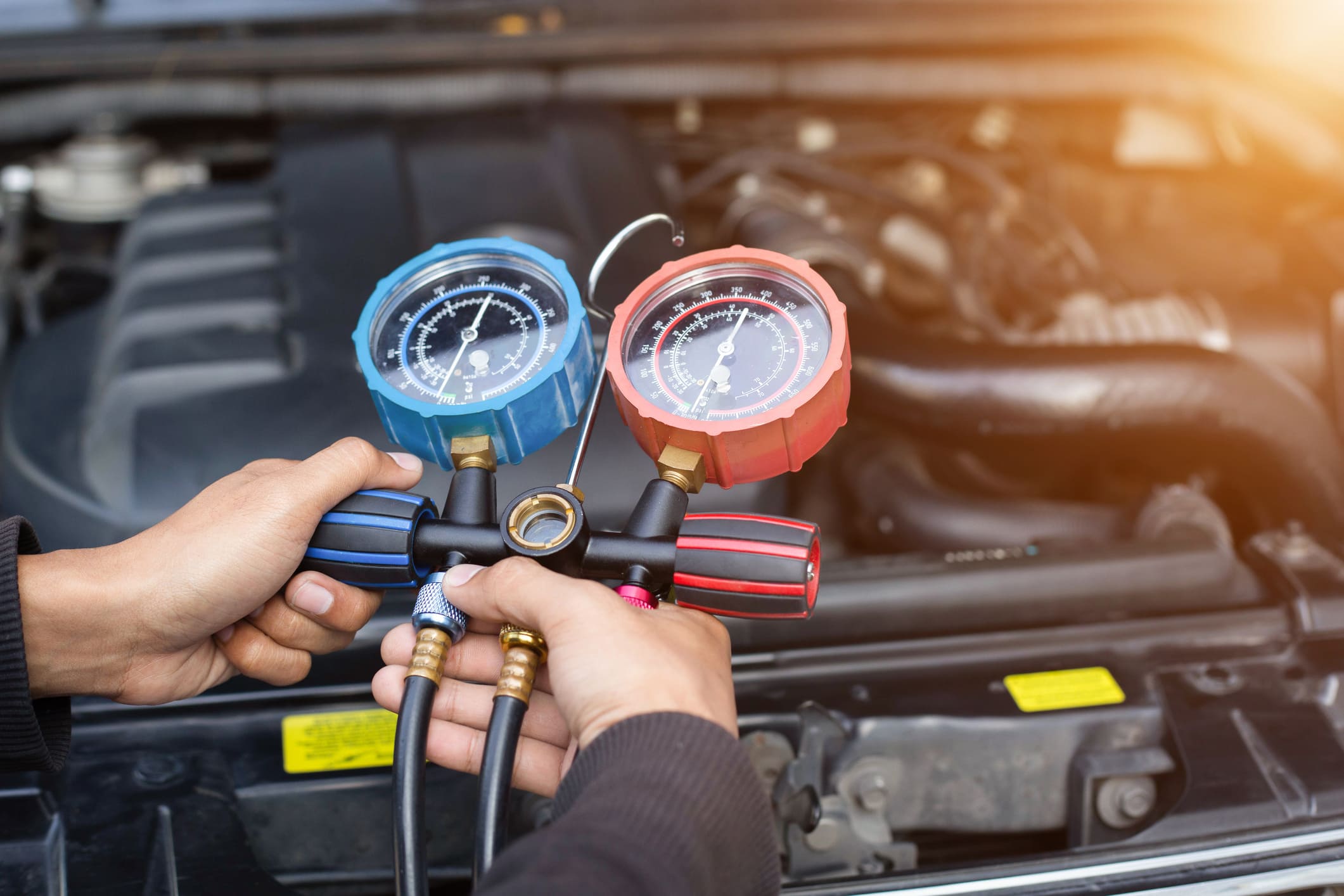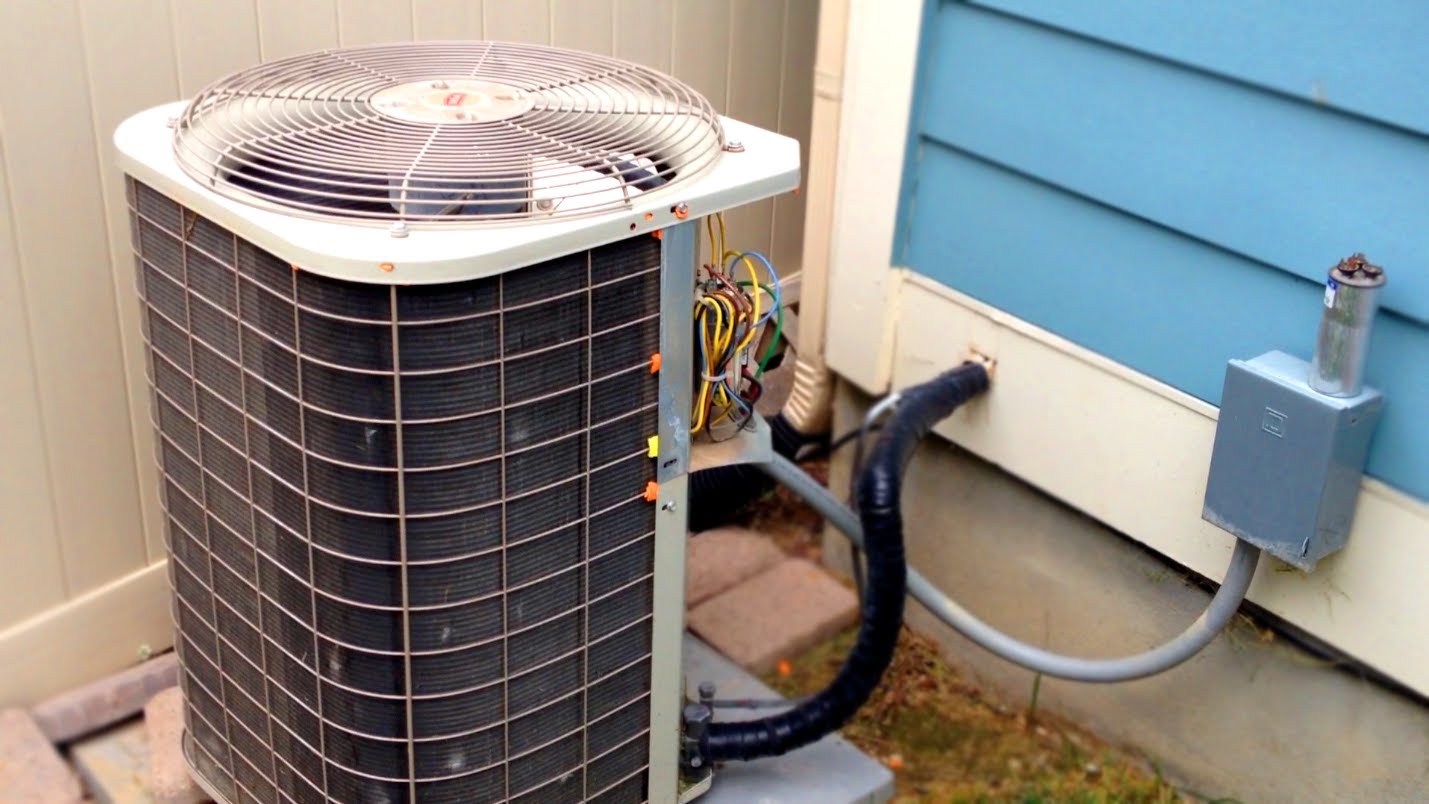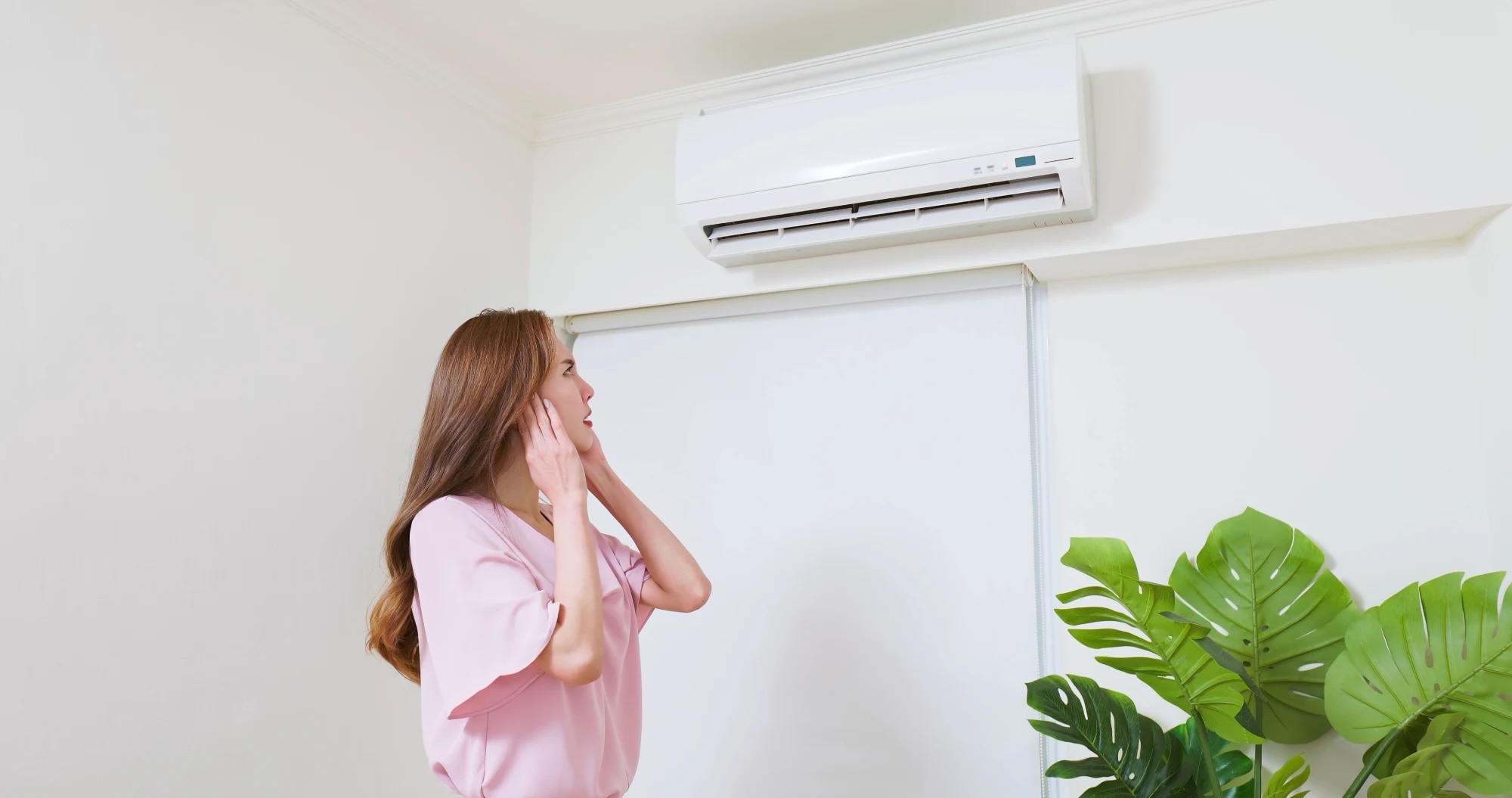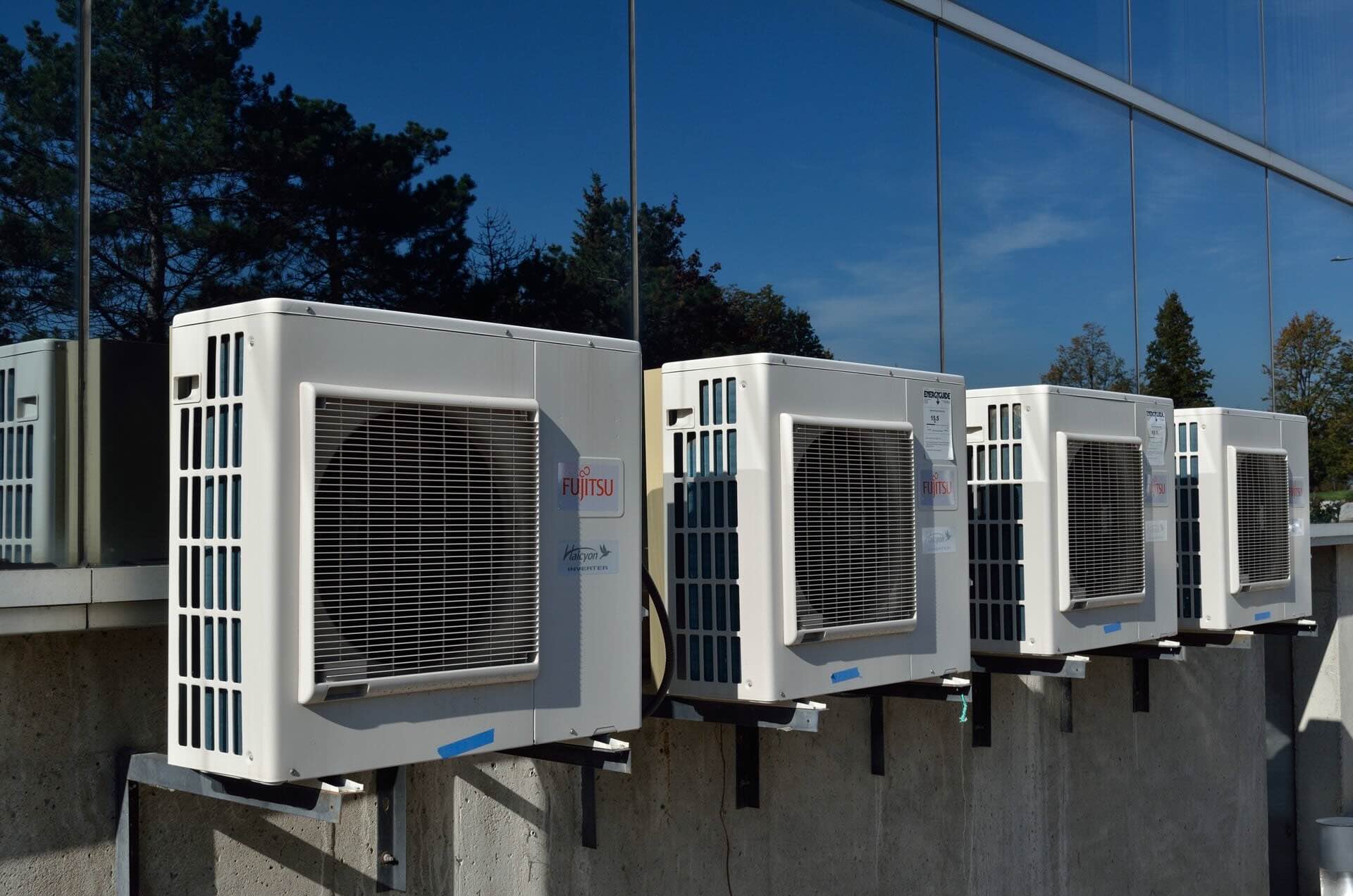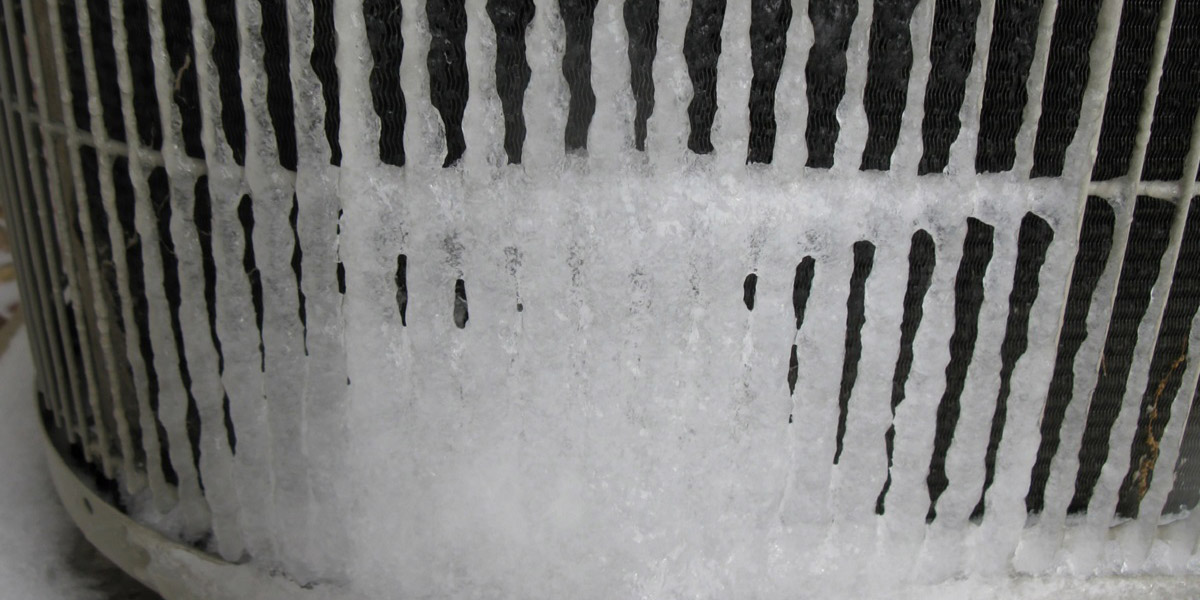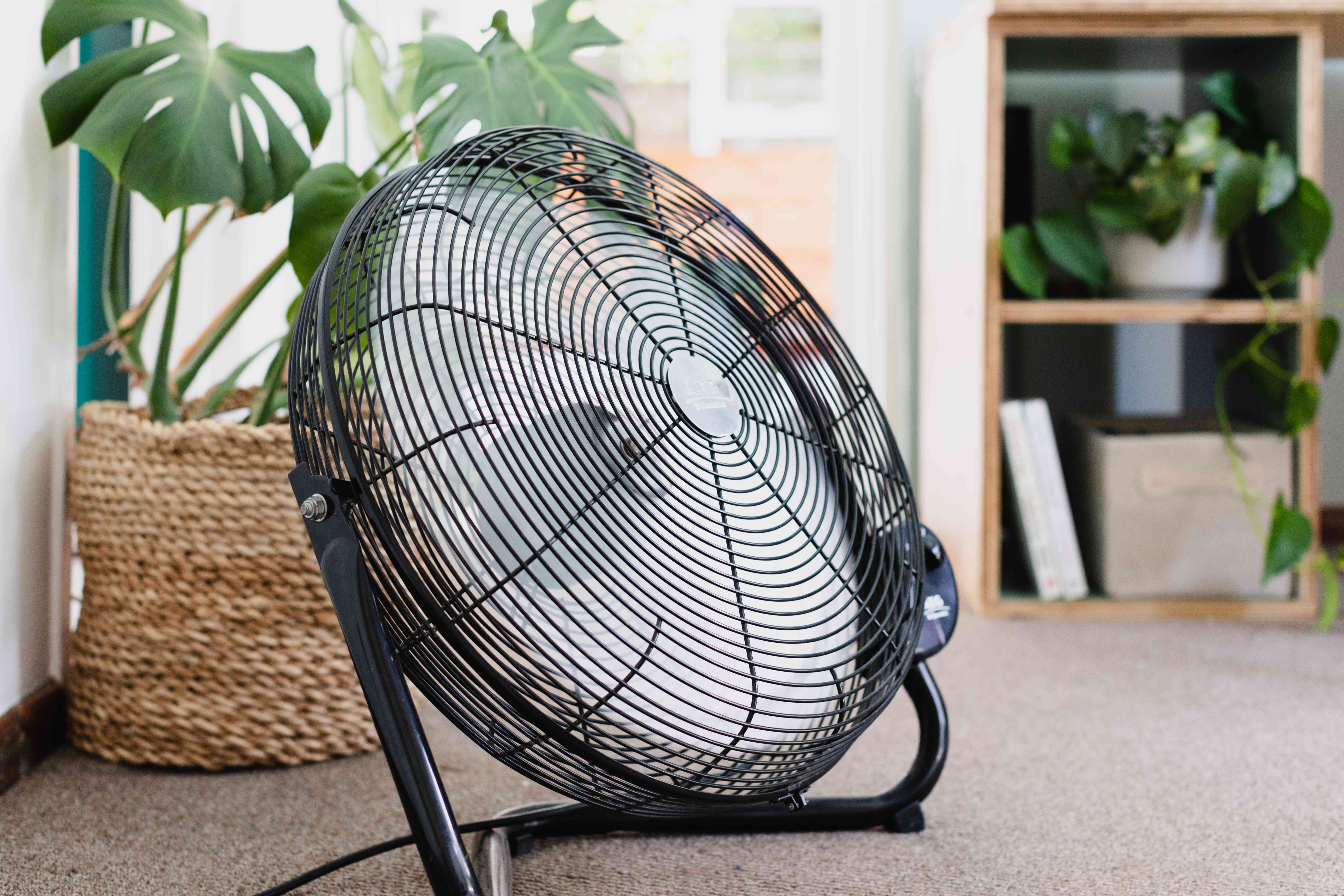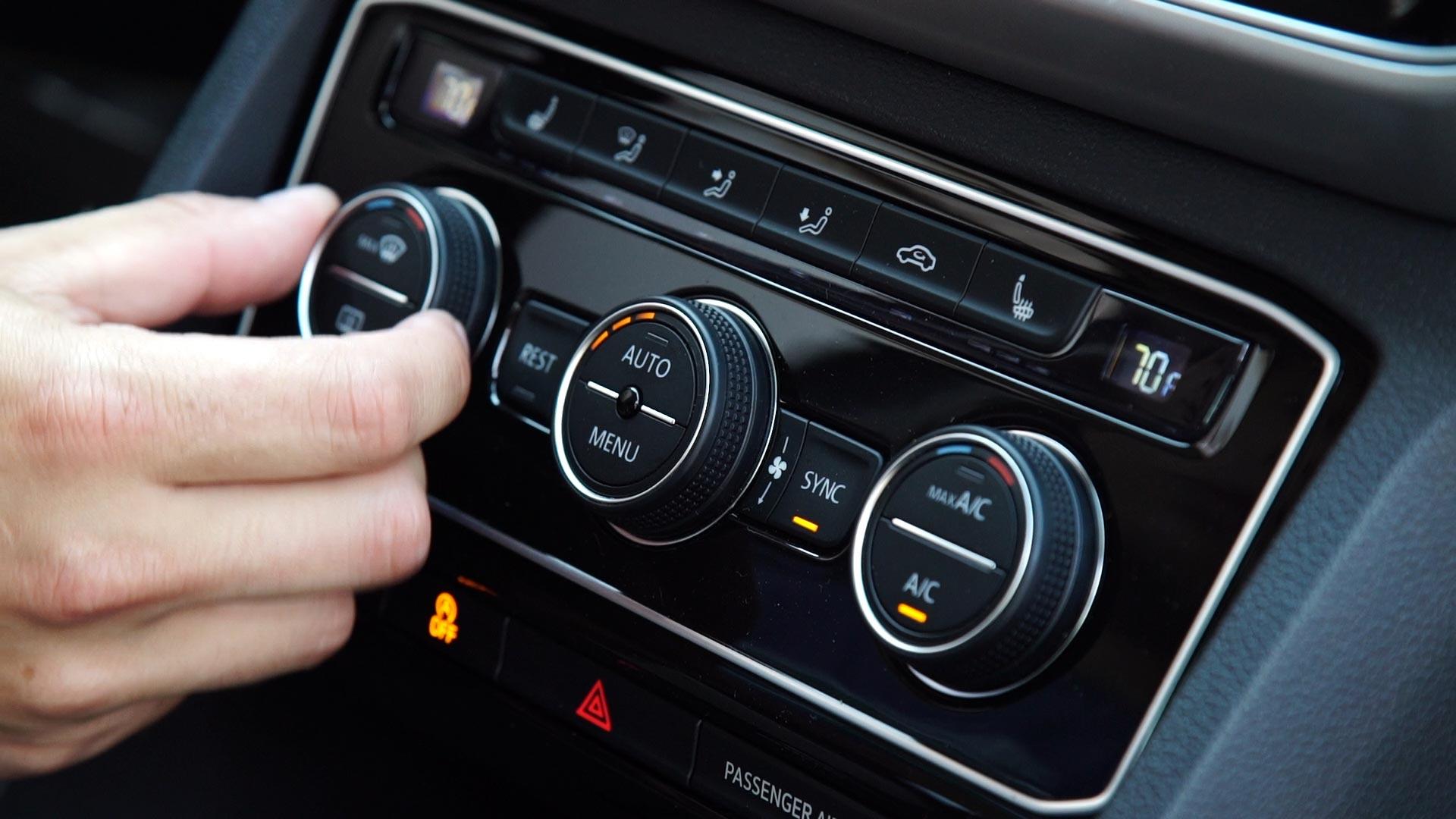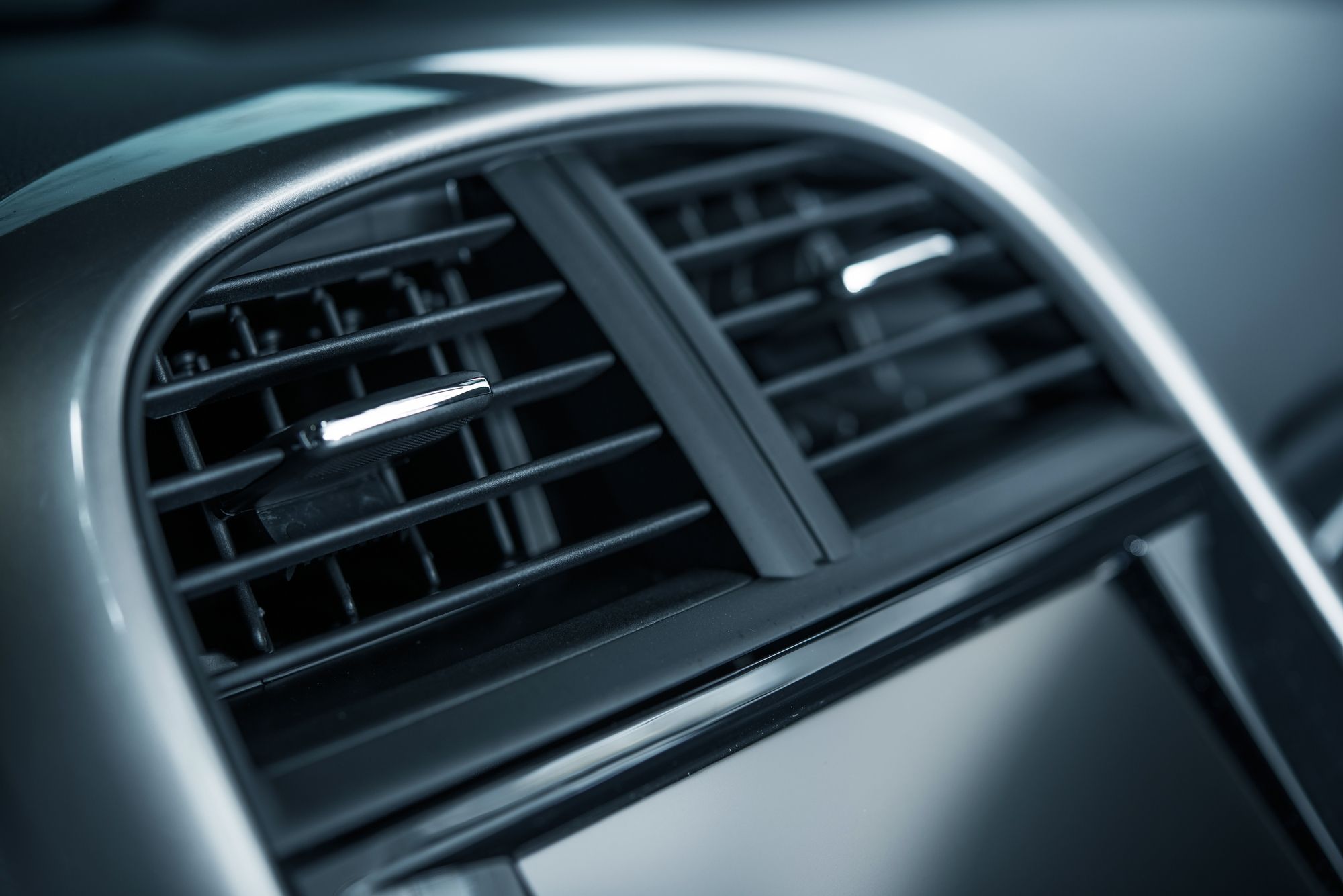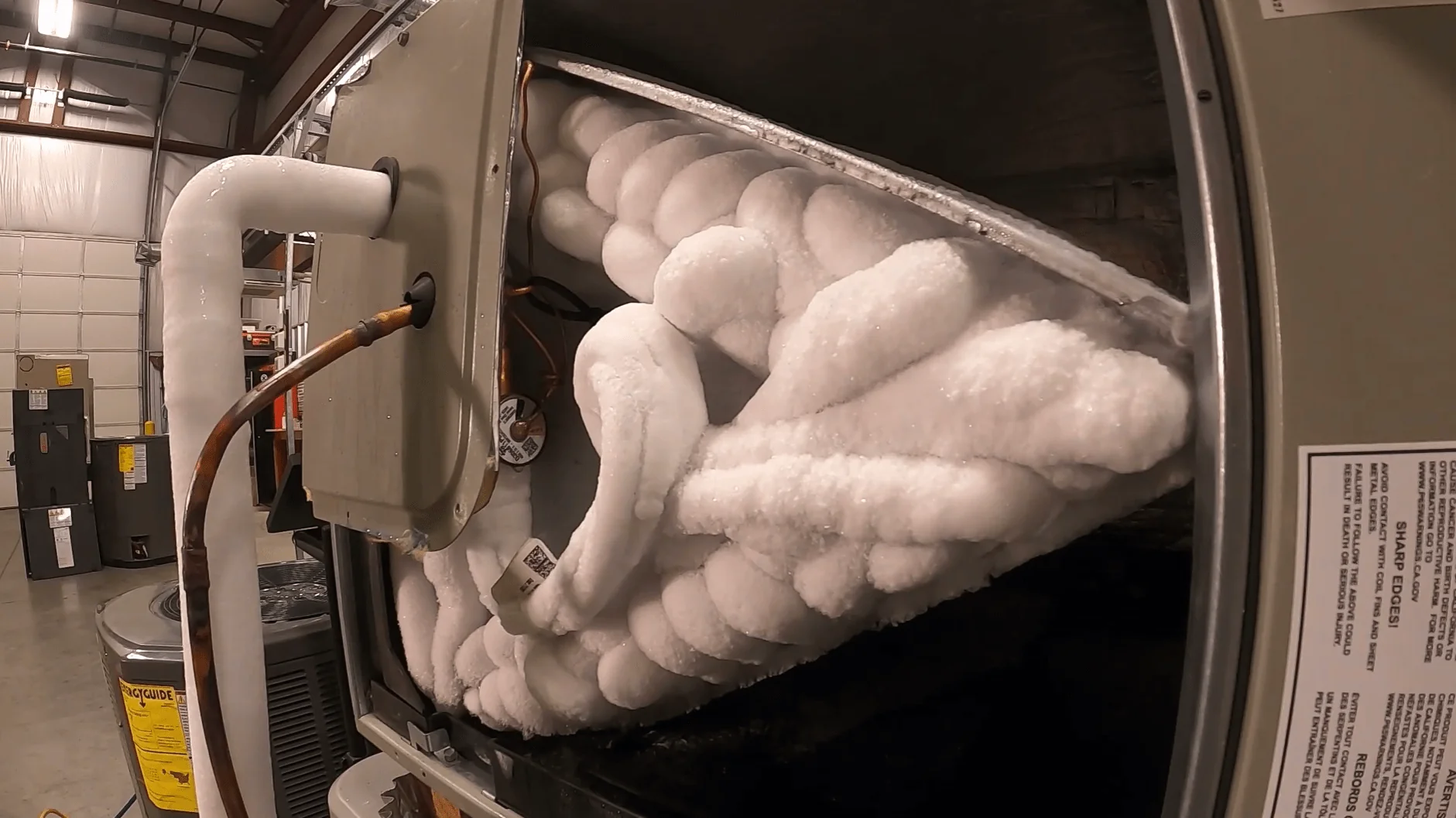Home>Home Maintenance>Why Is The Car Air Conditioner Not Cooling


Home Maintenance
Why Is The Car Air Conditioner Not Cooling
Modified: March 7, 2024
Is your car air conditioner not cooling? Learn about common reasons and solutions for a home maintenance issue with your car's cooling system. Keep cool on the road!
(Many of the links in this article redirect to a specific reviewed product. Your purchase of these products through affiliate links helps to generate commission for Storables.com, at no extra cost. Learn more)
Introduction
Having a car air conditioner that is not cooling properly can be incredibly frustrating, especially during hot summer months. When you turn on your car’s air conditioning system, you expect it to provide a rush of cool, refreshing air. However, if you find that the air blowing out of the vents is warm or not as cold as it should be, it’s important to address the issue to ensure your comfort and safety on the road.
There can be several reasons why your car’s air conditioner is not cooling effectively. It could be due to low refrigerant levels, a dirty condenser, a malfunctioning compressor, a clogged expansion valve, or a faulty blower motor. Understanding these common causes and the available solutions can help you diagnose and resolve the issue promptly.
Key Takeaways:
- Keep your car’s air conditioner in top shape by addressing common issues like low refrigerant, dirty condenser, malfunctioning compressor, clogged expansion valve, and faulty blower motor. Regular maintenance is key to staying cool on the road.
- Don’t sweat it! If your car’s air conditioner isn’t cooling, it could be due to low refrigerant, a dirty condenser, a malfunctioning compressor, a clogged expansion valve, or a faulty blower motor. Get it checked and stay cool on the go!
Read more: Why Does My Car Air Conditioner Smell
Common Causes for the Car Air Conditioner Not Cooling
When your car air conditioner is not cooling properly, it could be due to various factors. Here are some of the most common causes:
- Low Refrigerant Level: One of the primary causes of an ineffective air conditioner is a low refrigerant level. Refrigerant is responsible for absorbing heat from the air, cooling it, and then releasing it back into the car’s cabin. If the refrigerant level is low, the cooling capacity of the air conditioning system is compromised.
- Dirty Condenser: The condenser is located at the front of the car and helps dissipate heat from the refrigerant. Over time, the condenser can accumulate dirt, debris, and other contaminants, hindering its ability to effectively cool the refrigerant. This can result in reduced cooling performance.
- Malfunctioning Compressor: The compressor plays a crucial role in the air conditioning system by compressing the refrigerant and transferring it between the evaporator and condenser coils. If the compressor is faulty or not functioning properly, it can lead to inadequate cooling or no cooling at all.
- Clogged Expansion Valve: The expansion valve regulates the flow of refrigerant, allowing it to expand and cool down as it passes through the evaporator coil. If the expansion valve becomes clogged or blocked, it can disrupt the refrigerant flow, leading to insufficient cooling.
- Faulty Blower Motor: The blower motor is responsible for pushing the cooled air from the evaporator through the vents and into the car’s cabin. If the blower motor is malfunctioning or not functioning at full capacity, it can impact the airflow, resulting in poor cooling performance.
These common causes can occur due to various reasons, including normal wear and tear, lack of maintenance, or even environmental factors. It is essential to identify the cause accurately to determine the appropriate steps for resolving the issue and restoring your car’s air conditioning system to optimal cooling performance.
Low Refrigerant Level
One of the most common causes of a car air conditioner not cooling properly is a low refrigerant level. Refrigerant is the substance responsible for absorbing heat from the air and cooling it before it is circulated back into the car’s cabin.
Over time, refrigerant can gradually leak from the system due to small cracks or worn-out seals. When the refrigerant level becomes too low, the air conditioning system is unable to effectively cool the air, resulting in diminished cooling performance.
If you suspect that low refrigerant is the cause of your car’s air conditioner not cooling, it’s important to have the system inspected by a professional technician. They will check for any leaks and determine the correct refrigerant levels.
The solution for low refrigerant is typically recharging the system. This involves adding refrigerant to the specified level recommended by the vehicle manufacturer. However, it’s crucial to note that simply recharging the system without addressing the underlying cause of the refrigerant leak will only provide a temporary solution.
To ensure long-term effectiveness, the technician should also inspect the system for any leaks. If a leak is detected, it’s important to have it repaired promptly to prevent further refrigerant loss and maintain optimal cooling performance.
Regular maintenance can help identify early signs of refrigerant leaks and prevent them from becoming a major issue. If you notice a decrease in cooling performance or any signs of a refrigerant leak, such as hissing sounds or an oily substance around the air conditioning components, it’s crucial to have your car’s air conditioning system professionally inspected and repaired.
By addressing and resolving low refrigerant levels, you can restore the cooling efficiency of your car’s air conditioner and enjoy a comfortable driving experience, even in the hottest temperatures.
Dirty Condenser
Another common cause of a car air conditioner not cooling properly is a dirty condenser. The condenser plays a vital role in dissipating heat from the refrigerant, allowing it to cool down before it circulates back into the car’s cabin.
Over time, the condenser can accumulate dirt, dust, leaves, and other debris, which can restrict airflow and hinder its ability to effectively cool the refrigerant. This can result in reduced cooling performance and warm air blowing out of the vents.
To determine if a dirty condenser is the cause of your air conditioner’s inefficiency, you can visually inspect it. The condenser is typically located at the front of the vehicle, behind the grille. Look for any visible signs of dirt or debris, such as clogging or blockage.
If you notice a dirty condenser, it’s important to clean it to restore its optimal cooling efficiency. You can use a soft brush or compressed air to remove the debris gently. Be cautious not to apply too much pressure, as this can damage the delicate fins of the condenser.
Alternatively, you can take your car to a professional technician who can thoroughly clean the condenser using specialized tools and cleaning solutions. They will ensure that all dirt and debris are effectively removed, allowing for proper airflow and efficient cooling.
Regular maintenance is key to preventing a dirty condenser. It is recommended to have your air conditioning system inspected and cleaned at least once a year, or more frequently if you frequently drive in dusty or dirty environments.
By addressing a dirty condenser and keeping it clean, you can optimize the cooling performance of your car’s air conditioner and enjoy a consistently cool and comfortable driving experience.
Malfunctioning Compressor
A malfunctioning compressor is another common cause of a car air conditioner not cooling properly. The compressor is a crucial component of the air conditioning system as it is responsible for compressing the refrigerant and transferring it between the evaporator and condenser coils.
If the compressor is faulty or not functioning at its full capacity, it can result in inadequate cooling or no cooling at all. There are several reasons why a compressor may malfunction:
- Electrical Issues: Problems with the electrical connections or wiring can cause the compressor to fail or work inefficiently.
- Clutch Issues: The compressor clutch engages and disengages the compressor. If the clutch is not functioning correctly, it can prevent the compressor from operating properly.
- Lack of Lubrication: The compressor relies on lubricating oil for smooth operation. Insufficient or contaminated lubrication can lead to compressor failure.
- Internal Damage: Internal components of the compressor, such as valves or pistons, can become damaged over time, affecting its ability to compress the refrigerant effectively.
If you suspect that a malfunctioning compressor is the cause of your air conditioner not cooling, it’s essential to have it diagnosed and repaired by a qualified technician. They will perform a thorough inspection of the compressor and its components to identify the exact cause of the malfunction.
Depending on the extent of the damage, the technician may recommend repairing or replacing the compressor. In some cases, minor issues can be resolved by repairing specific components within the compressor. However, if the damage is severe, a compressor replacement may be necessary to restore the cooling efficiency of the air conditioning system.
Regular maintenance and servicing of the air conditioning system can help prevent compressor issues. It is important to have the system inspected regularly, check the compressor’s lubrication levels, and address any electrical or mechanical problems promptly.
By addressing a malfunctioning compressor, you can ensure that your car’s air conditioner works effectively, providing you with the cool and comfortable driving experience you desire.
Read more: How To Clean A Car Air Conditioner
Clogged Expansion Valve
The expansion valve is a vital component of a car’s air conditioning system. It regulates the flow of refrigerant, allowing it to expand and cool down as it passes through the evaporator coil. However, over time, the expansion valve can become clogged or blocked, resulting in inadequate cooling performance.
There are several reasons why the expansion valve may become clogged:
- Contaminants in the System: Dust, debris, or other contaminants can accumulate in the system over time, causing them to block the flow of refrigerant through the expansion valve.
- Moisture or Ice Formation: If moisture or ice forms within the air conditioning system, it can freeze and block the expansion valve, hindering the proper flow of refrigerant.
- Failed or Damaged Valve: In some cases, the expansion valve itself may become faulty, leading to blockages and reduced cooling efficiency.
If you suspect a clogged expansion valve is the cause of your air conditioner not cooling properly, it’s important to have it inspected and cleaned by a qualified technician. They will examine the valve, check for blockages, and determine the root cause of the issue.
In some cases, a technician may be able to clear the blockage by flushing the system with a specialized cleaning solution. This can help remove any debris or contaminants that are causing the clog. Additionally, they may need to assess the system for any moisture or ice buildup and address those issues as well.
In more severe cases, the expansion valve may need to be replaced to restore proper refrigerant flow and cooling performance. A technician will be able to determine the best course of action based on the condition and functionality of the valve.
Regular maintenance of the air conditioning system, including periodic inspections and cleaning, can help prevent the expansion valve from becoming clogged. It’s essential to address any signs of blockage or reduced cooling performance promptly to maintain optimal operation of the system.
By clearing a clogged expansion valve, you can improve the cooling efficiency of your car’s air conditioner and enjoy a comfortable driving experience, even on the hottest days.
Faulty Blower Motor
A faulty blower motor can also contribute to a car air conditioner not cooling properly. The blower motor is responsible for pushing the cooled air from the evaporator through the vents and into the car’s cabin.
If the blower motor is malfunctioning or not operating at its full capacity, it can result in reduced airflow, leading to poor cooling performance. There are several reasons why a blower motor may become faulty:
- Electrical Issues: Problems with the electrical connections or wiring can cause the blower motor to fail or work inefficiently.
- Motor Wear and Tear: The blower motor is subjected to continuous use, which can lead to wear and tear over time. This can result in decreased performance or complete motor failure.
- Blower Fan Issues: The blower fan, which is attached to the motor, can become damaged or imbalanced, affecting the airflow generated by the blower motor.
If you suspect that a faulty blower motor is causing your air conditioner to not cool properly, it’s essential to have it inspected by a qualified technician. They will examine the motor and diagnose the issue.
In some cases, minor issues with the blower motor can be repaired. This may involve replacing faulty electrical components or addressing any imbalances in the fan. However, if the motor is severely damaged or worn out, a replacement may be necessary to restore proper airflow and cooling performance.
Regular maintenance of the air conditioning system can help prevent blower motor issues. It is important to have the system inspected periodically to check the motor’s condition, lubricate any moving parts, and address any electrical or mechanical problems as soon as they arise.
By resolving a faulty blower motor, you can ensure that your car’s air conditioner effectively circulates cool air throughout the cabin, providing you with a comfortable and enjoyable driving experience.
Check the refrigerant levels in your car’s air conditioning system. Low refrigerant can cause the AC to blow warm air. If the levels are low, have a professional technician inspect for leaks and recharge the system if necessary.
Possible Solutions for the Car Air Conditioner Not Cooling
When your car’s air conditioner is not cooling properly, it’s important to address the issue promptly to restore optimal cooling performance. Here are some possible solutions for resolving the problem:
- 1. Recharging the Refrigerant: If the cause of the inefficiency is determined to be a low refrigerant level, recharging the system with the appropriate refrigerant can help restore cooling capacity. It is important to have this done by a professional technician who can also inspect for refrigerant leaks and repair them if necessary.
- 2. Cleaning the Condenser: A dirty condenser can hinder the cooling efficiency of the air conditioner. Cleaning the condenser by removing any dirt, debris, or clogs can improve airflow and coolant circulation. This can be done using a soft brush or compressed air, or by seeking professional assistance.
- 3. Repairing or Replacing the Compressor: If the compressor is malfunctioning, it may need to be repaired or replaced. A qualified technician can diagnose the issue and suggest the best course of action. Repairing specific components within the compressor or replacing the entire unit may be necessary to restore proper refrigerant compression.
- 4. Clearing the Clogged Expansion Valve: In the case of a clogged expansion valve, it may need to be cleaned to restore proper refrigerant flow. A technician can inspect the valve, clear any blockages, and ensure that it is functioning optimally. If the valve is severely damaged, it may need to be replaced.
- 5. Repairing or Replacing the Blower Motor: A faulty blower motor can hinder the airflow and cooling performance. Depending on the extent of the damage, the motor may be repaired by addressing electrical or mechanical issues. In more severe cases, a replacement may be necessary to ensure proper airflow.
It’s important to note that attempting these solutions yourself can be complex and may require specialized tools or knowledge. It is recommended to seek the assistance of a professional technician who can accurately diagnose the issue and provide appropriate solutions.
Regular maintenance and servicing of the air conditioning system can also help prevent these problems from occurring. Ensuring proper refrigerant levels, keeping components clean, and addressing any issues promptly can help maintain optimal cooling performance and extend the lifespan of the air conditioner.
By implementing the necessary solutions, you can restore the cooling efficiency of your car’s air conditioner, ensuring a comfortable and enjoyable driving experience, even in the hottest weather.
Recharging the Refrigerant
One of the possible solutions for a car air conditioner not cooling properly is to recharge the refrigerant. The refrigerant is a substance responsible for absorbing heat from the air, cooling it, and then releasing it back into the car’s cabin.
Over time, the refrigerant level can become low due to normal leakage or other issues within the system. When the refrigerant level drops, the cooling capacity of the air conditioning system is compromised, resulting in reduced cooling performance.
To address this issue, recharging the refrigerant is necessary. It involves adding the appropriate amount of refrigerant to achieve the specified level recommended by the vehicle manufacturer.
To recharge the refrigerant, it is crucial to consult a professional technician who can accurately diagnose the system and determine the correct refrigerant type and quantity required for your car. They will use the appropriate equipment and gauges to measure and add the refrigerant to the system.
It’s important to note that simply recharging the refrigerant without addressing the underlying cause of the low level will provide only a temporary solution. A technician will also inspect the system for any refrigerant leaks, which may require repair or replacement of faulty components.
Regular maintenance and servicing of the air conditioning system can help prevent refrigerant leaks and ensure optimal cooling performance. However, if you notice a decrease in cooling efficiency or any signs of a refrigerant leak, such as hissing sounds or an oily substance around the air conditioning components, it’s crucial to have your car’s air conditioning system professionally inspected and repaired.
By recharging the refrigerant, you can restore the cooling capacity of your car’s air conditioner, ensuring comfortable and refreshing airflow throughout your journey, even on the hottest days.
Read more: When Car Air Conditioner Is Not Cooling
Cleaning the Condenser
An important solution for a car air conditioner not cooling properly is to clean the condenser. The condenser is a component located at the front of the vehicle, responsible for dissipating heat from the refrigerant and cooling it down before it is circulated back into the car’s cabin.
Over time, the condenser can accumulate dirt, dust, leaves, and other debris, which can restrict airflow and hinder its ability to effectively cool the refrigerant. This can result in reduced cooling performance and warm air blowing out of the vents.
To address this issue, it is necessary to clean the condenser to restore its optimal cooling efficiency. There are a few methods to clean the condenser:
- Visual Inspection: Begin by visually inspecting the condenser. Look for any visible signs of dirt or debris, such as clogging or blockage. If you notice accumulated dirt or debris on the surface, it is an indication that cleaning is required.
- Soft Brush or Compressed Air: Cleaning the condenser can be done using a soft brush or compressed air. Gently brush or blow away the dirt, dust, and debris from the condenser fins. Be cautious not to apply too much pressure, as this can damage the delicate fins of the condenser.
- Professional Cleaning: Alternatively, you can take your car to a professional technician who can perform a thorough cleaning of the condenser using specialized tools and cleaning solutions. They will ensure that all dirt and debris are effectively removed from the fins, allowing for proper airflow and efficient cooling.
Regular maintenance and cleaning of the condenser can help prevent the buildup of dirt and debris, thereby optimizing the cooling performance of the air conditioning system. It is recommended to have your air conditioning system inspected and cleaned at least once a year or more frequently if you often drive in dusty or dirty environments.
By cleaning the condenser, you can improve the airflow, enhance cooling efficiency, and enjoy a consistently cool and comfortable driving experience, even in high-temperature conditions.
Repairing or Replacing the Compressor
If your car’s air conditioner is not cooling properly, a potential solution is to repair or replace the compressor. The compressor is a critical component of the air conditioning system that is responsible for compressing the refrigerant and transferring it between the evaporator and condenser coils.
If the compressor is malfunctioning or not operating at its full capacity, it can result in inadequate cooling or no cooling at all. There are several reasons why a compressor may need repair or replacement:
- Electrical Issues: Problems with the electrical connections or wiring can cause the compressor to fail or work inefficiently. These issues may require repair or replacement of the faulty electrical components.
- Clutch Issues: The compressor clutch engages and disengages the compressor. If the clutch is not functioning correctly, it can prevent the compressor from operating properly. In some cases, the clutch may need repair or adjustment, while in other cases, it may need to be replaced.
- Lack of Lubrication: The compressor relies on lubricating oil for smooth operation. Insufficient or contaminated lubrication can lead to compressor failure. In such cases, the compressor may need to be repaired or replaced, and the lubrication system should be inspected and maintained properly.
- Internal Damage: Over time, internal components of the compressor, such as valves or pistons, can become damaged or worn out. This can result in decreased performance or complete compressor failure. Depending on the extent of the damage, repair or replacement may be necessary to restore proper refrigerant compression.
If you suspect that the compressor is the cause of your air conditioner not cooling properly, it is important to have it diagnosed and repaired by a qualified technician. They will conduct a detailed inspection of the compressor and its components to identify the exact cause of the malfunction.
In some cases, minor issues with the compressor can be repaired by addressing specific components or electrical problems. However, if the damage is severe or the compressor is too worn out, a replacement may be necessary to ensure proper refrigerant compression and cooling efficiency.
Regular maintenance of the air conditioning system can help prevent compressor issues. It is essential to have the system inspected regularly, check the compressor’s lubrication levels, and address any electrical or mechanical problems promptly.
By repairing or replacing the compressor, you can restore the proper functionality of your car’s air conditioner, ensuring efficient cooling and a comfortable driving experience, even in the hottest weather.
Clearing the Clogged Expansion Valve
If your car’s air conditioner is not cooling properly, one possible solution is to clear a clogged expansion valve. The expansion valve plays a crucial role in the air conditioning system by regulating the flow of refrigerant, allowing it to expand and cool down as it passes through the evaporator coil.
Over time, the expansion valve can become clogged or blocked, disrupting the flow of refrigerant and reducing cooling efficiency. Several factors can lead to a clogged expansion valve:
- Contaminants in the System: Dust, debris, or other contaminants can accumulate within the air conditioning system, causing blockages in the expansion valve.
- Moisture or Ice Formation: If moisture or ice forms within the system, it can freeze and block the expansion valve, impairing the proper flow of refrigerant.
- Failed or Damaged Valve: In some cases, the expansion valve itself may become faulty or damaged, resulting in blockages and reduced cooling efficiency.
If you suspect that a clogged expansion valve is the cause of your air conditioner not cooling properly, it is important to have it inspected and addressed by a qualified technician. They will examine the valve, check for blockages, and determine the root cause of the issue.
To clear a clogged expansion valve, several methods can be employed:
- Flushing the System: Flushing the system with a specialized cleaning solution can help remove debris or contaminants that are causing the clog. This procedure should be performed by a professional technician.
- Removing and Cleaning the Valve: In some cases, the expansion valve may need to be removed and thoroughly cleaned to ensure proper refrigerant flow. The technician will inspect the valve, disassemble it if needed, clean it thoroughly, and reassemble it.
- Replacing the Valve: If the expansion valve is severely damaged or cannot be cleared, it may need to be replaced. The technician will determine if a replacement valve is necessary and install it properly.
Regular maintenance and servicing of the air conditioning system can help prevent blockages in the expansion valve. By having the system inspected regularly, you can ensure that any potential issues are detected and addressed promptly, improving the overall cooling performance.
By clearing a clogged expansion valve, you can restore proper refrigerant flow, optimize the cooling efficiency of your car’s air conditioner, and enjoy a comfortable driving experience, particularly during hot weather.
Repairing or Replacing the Blower Motor
If your car’s air conditioner is not cooling properly, a possible solution is to repair or replace the blower motor. The blower motor plays a crucial role in the air conditioning system by pushing the cooled air from the evaporator through the vents and into the car’s cabin.
If the blower motor is malfunctioning or not operating at its full capacity, it can result in reduced airflow, leading to poor cooling performance. There are several reasons why a blower motor may need repair or replacement:
- Electrical Issues: Problems with the electrical connections or wiring can cause the blower motor to fail or work inefficiently. These issues may require repair or replacement of the faulty electrical components.
- Motor Wear and Tear: The blower motor is subjected to continuous use, which can lead to wear and tear over time. This can result in decreased performance or complete motor failure. In some cases, the motor may be repaired by addressing electrical or mechanical issues.
- Blower Fan Issues: The blower fan, which is attached to the motor, can become damaged or imbalanced. This can affect the airflow generated by the blower motor, resulting in reduced cooling efficiency. Depending on the extent of the damage, the fan may need repair or replacement.
If you suspect that a faulty blower motor is causing your air conditioner not to cool properly, it is important to have it inspected and addressed by a qualified technician. They will examine the motor and diagnose the issue accurately.
In some cases, minor issues with the blower motor can be repaired. This may involve replacing faulty electrical components, balancing the fan, or addressing mechanical issues. However, if the motor is severely damaged or worn out, a replacement may be necessary to ensure proper airflow and cooling performance.
Regular maintenance of the air conditioning system can help prevent blower motor issues. It is essential to have the system inspected regularly, clean the motor and fan, lubricate any moving parts, and address any electrical or mechanical problems promptly.
By repairing or replacing the blower motor, you can restore the airflow and ensure optimal cooling performance of your car’s air conditioner. This will provide you with a comfortable and enjoyable driving experience, regardless of the outside temperature.
Read more: Car Sputters When Air Conditioner Is On
Conclusion
When your car’s air conditioner is not cooling properly, it can be a frustrating experience, particularly during hot summer days. Understanding the common causes and possible solutions for this issue is crucial in restoring the optimal cooling performance of your car’s air conditioning system.
Low refrigerant level is a common cause for inadequate cooling. Recharging the refrigerant can help replenish the level and restore proper cooling capacity. It is important to have a professional technician inspect for any refrigerant leaks and address them to avoid further issues.
A dirty condenser can also hinder the cooling efficiency of the air conditioner. Regularly cleaning the condenser, either through visual inspection and gentle brushing or seeking professional cleaning services, can enhance airflow and coolant circulation, leading to improved cooling performance.
If the compressor is malfunctioning, repairing or replacing it may be necessary. Electrical issues, clutch problems, lack of lubrication, or internal damage can affect the performance of the compressor. A qualified technician will diagnose the issue accurately and suggest the appropriate course of action.
A clogged expansion valve can disrupt the flow of refrigerant, resulting in reduced cooling efficiency. Clearing the blockage by flushing the system or cleaning and replacing the valve can restore proper refrigerant flow and cooling performance.
A faulty blower motor can also lead to inadequate airflow and cooling performance. Repairing or replacing the blower motor, addressing electrical or mechanical issues, and ensuring proper maintenance of the system can optimize airflow and enhance cooling effectiveness.
In conclusion, addressing the common causes of a car air conditioner not cooling properly is essential in restoring optimal cooling performance. Regular maintenance, including cleaning components, recharging refrigerant, and addressing any issues promptly, is key to maintaining an efficient air conditioning system.
It is recommended to consult a professional technician for accurate diagnosis and appropriate solutions. By implementing the necessary measures, you can enjoy a cool and comfortable driving experience, even during the hottest weather. Stay refreshed on the road and ensure your air conditioning system is in top shape for your comfort and convenience.
Frequently Asked Questions about Why Is The Car Air Conditioner Not Cooling
Was this page helpful?
At Storables.com, we guarantee accurate and reliable information. Our content, validated by Expert Board Contributors, is crafted following stringent Editorial Policies. We're committed to providing you with well-researched, expert-backed insights for all your informational needs.
